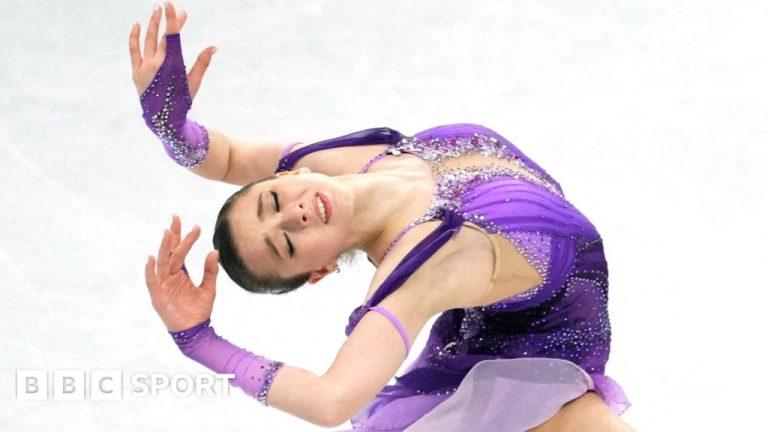Russian skater Kamila Valeeva has been banned for four years for doping after initially being cleared.
An investigation by the Russian Anti-Doping Agency (Rusada) concluded that the teenager was not at fault for “any fault or negligence” for failing a test before the 2022 Winter Olympics when she was 15 years old.
But the Court of Arbitration for Sport (CAS) upheld the appeal filed by the World Anti-Doping Agency (WADA).
In response, Wada said: “Doping in children is unforgivable.”
News of Valeeva's failed test did not emerge until after she had helped Russia capture the gold medal in Beijing.
The ban was applied retroactively to December 25, 2021 – the date on which Valeeva conducted the failed test – and the CAS Commission also ordered “all competitive results achieved to be excluded” from that date.
But she said the power to strip Russia of the gold medal “is not within the scope of these arbitration proceedings and will have to be examined by the sporting organizations concerned.”
Cass said Valeeva, now 17, pleaded no contest to a banned substance, and was asked to determine what penalties, if any, she should face.
“Mrs Valeeva was unable, on the balance of probabilities and on the basis of the evidence before the committee, to prove that she had not intentionally committed an anti-doping rule violation (ADRV),” she said in her ruling.
He added that it had no effect “whether the athlete is an adult or a protected person,” referring to Valeeva’s age at the time of the failed test.
The Kremlin criticized the Court of Arbitration for Sport ruling, describing it as a “politicized” decision.

